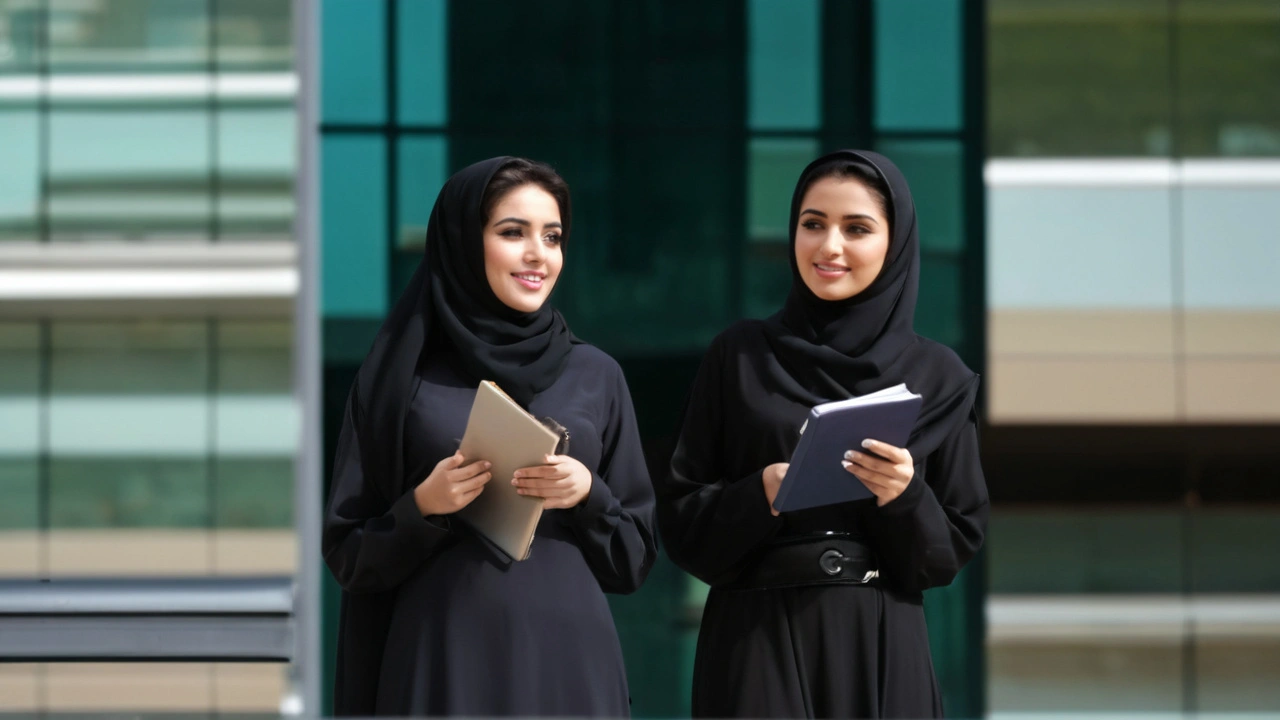Vision 2030: A Path to Economic and Educational Transformation in Saudi Arabia
Saudi Arabia's Vision 2030 is not simply a blueprint; it is an ambitious leap towards transforming the Kingdom's socio-economic fabric. One of its cornerstone initiatives focuses on reshaping the higher education landscape while simultaneously invigorating the economy. This grand strategy is already making waves, creating a profound impact across various sectors. According to a recent Colliers report, the program is diversifying the economy, ushering in roles previously nonexistent in the job market, and significantly altering the professional landscape in the Kingdom.
Reforming Higher Education
In the realm of higher education, Vision 2030 is a catalyst for change. Presently, 95% of students in Saudi Arabia are enrolled in public universities, where education is free and often perceived to be of higher quality. However, this concentration has its drawbacks. There is a considerable mismatch between the courses students opt for and the requirements of the employment market. A large proportion of students are drawn to humanities, Islamic studies, and behavioral sciences, fields that do not always align with the emerging job sectors in artificial intelligence, robotic sciences, nuclear energy, and renewable energy.
One notable statistic from the report is that 54% of the students in higher education institutions are female, reflecting a progressive shift in gender dynamics in the Kingdom. However, these advancements come with their own set of challenges. Technical roles, especially in tourism and hospitality, are often deemed to be of lower social status, deterring many from pursuing them. To counter this, the government is stepping up efforts to encourage private sector engagement in education. This could help bridge the gap between academic courses and job market needs, providing a more holistic educational environment that prepares students for the future.
The Evolving Job Market
Vision 2030 is intricately linked to economic diversification, aiming to reduce the Kingdom's reliance on oil and gas. This transformation is being ushered in through the creation of new job sectors, particularly in technology and renewable energy. Colliers' report underscores the rise in demand for professionals skilled in artificial intelligence, robotics, nuclear energy, and renewable energy. These sectors are pivotal to the planned economic diversification that Vision 2030 espouses.
The Saudization drive, another focal point of Vision 2030, aims to boost employment opportunities for Saudi nationals. By nationalizing the workforce, the government hopes to strike a balance between expatriates and local employees. Incentives are being rolled out to encourage businesses to hire more Saudis, but this is not without its challenges. Aligning the skillsets of the local workforce with the demands of new job markets remains a key area of focus.
The Growing Tourism Sector
Tourism stands out as a significant beneficiary of Vision 2030. Massive investments in tourism projects and regulatory changes are making the Kingdom more attractive to global visitors. The mushrooming of new tourist sites and the establishment of world-class resorts are placing Saudi Arabia on the global tourism map. Consequently, the demand for jobs in the tourism sector is expected to skyrocket, offering numerous employment opportunities for Saudi nationals.
Despite these advancements, the tourism and hospitality sectors are grappling with social stigmas. Technical roles within these industries are often viewed as less prestigious, which poses a significant hurdle in attracting locals. The government is actively working to change these perceptions by improving educational programs and emphasizing the value of hospitality roles. This will not only elevate the sector's status but also drive economic growth through a skilled and local workforce.
Private Sector Involvement in Education
A balanced regulatory environment is crucial to Vision 2030's success. The government recognizes the importance of private sector participation in enhancing the quality of education and creating job opportunities. Initiatives are underway to attract private investments, offering incentives and reducing bureaucratic hurdles.
One of the key strategies includes fostering public-private partnerships to improve educational infrastructure and curriculum. This would not only raise the standard of education but also ensure that courses are more aligned with industry requirements. By doing so, the Kingdom aims to produce a workforce that is better equipped to meet the demands of its evolving economy.
The Social Development Bank
In a further bid to bolster the economy, Vision 2030 includes the establishment of a Social Development Bank. With a substantial budget of SR22 billion, the bank aims to support the formation of over 70,000 small enterprises by the end of the decade. This initiative is designed to promote entrepreneurial spirit and support businesses, providing them with the necessary financial backing to thrive in a competitive market.
The Social Development Bank's role is multi-faceted. It offers financial assistance, mentorship, and resources to budding entrepreneurs, encouraging innovation and business development. This, in turn, stimulates job creation and drives economic diversification. By focusing on small enterprises, the bank is empowering grassroots level change, fostering a robust and sustainable economic environment.
Conclusion
Saudi Arabia's Vision 2030 is an ambitious and multifaceted blueprint for the nation's future. Through comprehensive reforms in education and economic diversification, the Kingdom is laying the groundwork for long-term prosperity. However, the journey is not without its challenges. Bridging the gap between educational curricula and job market demands, overcoming societal stigmas, and fostering private sector participation are critical to realizing the vision. With continued efforts and strategic initiatives, Saudi Arabia is well on its way to transforming its socio-economic landscape and securing a brighter future for its citizens.

Write a comment